
Thanks to its white ‘spectacles’, the Ringeye or Spectacled Petrel is one of the more charismatic petrels. It breeds only at Inaccessible Island in the central South Atlantic Ocean, where it has been threatened by introduced mammals and accidental bycatch on tuna longlines. Peter Ryan explains why it is becoming an increasingly regular visitor to southern African waters.
Although originally described as a distinct species, the Spectacled Petrel was generally considered a subspecies of the Whitechinned Petrel until 1998, when it was shown that the two species have different calls (Bird Conservation International 8: 223-235). Both species utter a series of rattles, groans and squealing calls at their nest burrows and in flight over their colonies. However, Spectacled Petrels have lower-pitched calls than White-chinned Petrels and their groan calls in particular have a more complex harmonic structure that is more similar to calls of other Procellaria petrels. Playback experiments show that Spectacled Petrels are much less responsive to recordings of Whitechinned Petrels than to those of other Spectacled Petrels.
This story is from the {{IssueName}} edition of {{MagazineName}}.
Start your 7-day Magzter GOLD free trial to access thousands of curated premium stories, and 9,000+ magazines and newspapers.
Already a subscriber ? Sign In
This story is from the {{IssueName}} edition of {{MagazineName}}.
Start your 7-day Magzter GOLD free trial to access thousands of curated premium stories, and 9,000+ magazines and newspapers.
Already a subscriber? Sign In

EXPLORING NEW HORIZONS
Keith Barnes, co-author of the new Field Guide to Birds of Greater Southern Africa, chats about the long-neglected birding regions just north of the Kunene and Zambezi, getting back to watching birds and the vulture that changed his life.
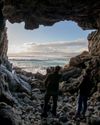
footloose IN FYNBOS
The Walker Bay Diversity Trail is a leisurely hike with a multitude of flowers, feathers and flavours along the way.
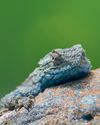
Living forwards
How photographing birds helps me face adversity
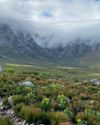
CAPE crusade
The Cape Bird Club/City of Cape Town Birding Big Year Challenge
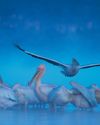
water & WINGS
WATER IS LIFE. As wildlife photographer Greg du Toit knows better than most.
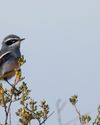
winter wanderer
as summer becomes a memory in the south, the skies are a little quieter as the migrants have returned to the warming north. But one bird endemic to the southern African region takes its own little winter journey.
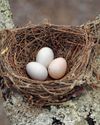
when perfect isn't enough
Egg signatures and forgeries in the cuckoo-drongo arms race

Southern SIGHTINGS
The late summer period naturally started quietening down after the midsummer excitement, but there were still some classy rarities on offer for birders all over the subregion. As always, none of the records included here have been adjudicated by any of the subregion's Rarities Committees.

flood impact on wetland birds
One of the features of a warming planet is increasingly erratic rainfall; years of drought followed by devastating floods. Fortunately, many waterbirds are pre-adapted to cope with such extremes, especially in southern Africa where they have evolved to exploit episodic rainfall events in semi-arid and arid regions. But how do waterbirds respond to floods in areas where rainfall - and access to water - is more predictable? Peter Ryan explores the consequences of recent floods on the birds of the Western Cape's Olifants River valley.
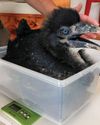
a star is born
It’s every producer’s dream to plan a wildlife television series and pick the right characters before filming.